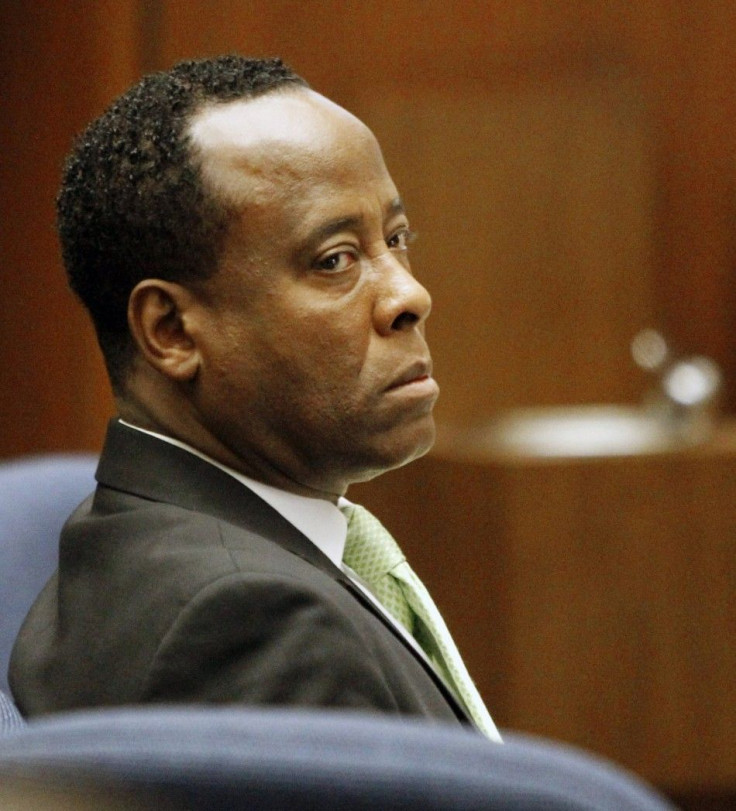Jurors hear of propofol shipments to Jackson doctor

Michael Jackson's doctor had packages of the powerful anesthetic propofol sent to his girlfriend's home while he was caring for the singer in the spring of 2009, a Los Angeles court heard on Tuesday.
Dr Conrad Murray is on trial on a charge of involuntary manslaughter stemming from Jackson's death on June 25, 2009, from an overdose of propofol and sedatives.
Prosecutors told jurors last week that Murray received 255 propofol vials at the apartment of girlfriend Nicole Alvarez, containing a total of more than 4 gallons of the substance.
Alvarez testified on Tuesday that after she gave birth to his son, the physician was living with her in the beach city of Santa Monica and treating Jackson at the singer's rented Los Angeles mansion.
She acknowledged receiving packages from a pharmacy in Las Vegas but said she did not know what they contained.
I do remember receiving shipments ... every now and then, Alvarez said in a sometimes testy exchange with prosecutors.
Tim Lopez, the former owner of Applied Pharmacy in Las Vegas, said on the witness stand that he sent 255 vials of propofol by express delivery to the Santa Monica apartment after Murray, who had practices in Texas and Nevada, told him it was the address for his medical office in California.
Murray did not have a medical office in the state, according to authorities.
Lopez testified that on one occasion in May, he was headed to Los Angeles and offered to personally deliver drugs to what he thought was Murray's office.
He said there was no need to do that, just use the delivery system as always, Lopez said. He added that he again sent the package by express shipping.
Murray admits giving the Thriller singer a small dose of propofol as a sleep aid but denies involuntary manslaughter. Defense attorneys claim Jackson, 50, caused his own death by giving himself an extra dose of the anesthetic, and sedatives, without Murray's knowledge.
Prosecutors on Tuesday also brought to the witness stand two other women whom Murray knew socially and either spoke to on the phone or texted on the day Jackson died.
But jurors heard little about the nature of their relationships with Murray. Attorneys for Murray have sought to exclude evidence concerning that part of his life on the grounds that it would prejudice jurors against him.
© Copyright Thomson Reuters 2024. All rights reserved.











